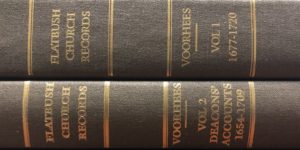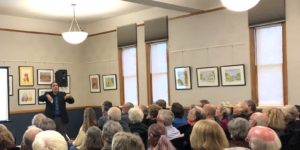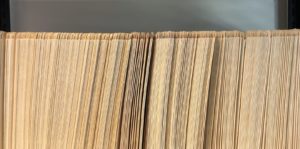How Savage the World: The Role of Women in Leisler’s Rebellion, a talk by Dr. David William Vorhees
This event is a revision, or rather a critique, of a former talk. One can’t change the past, but one’s interpretation of it should undergo revision as new information raises new questions. Dr, Voorhees speaks on the prominent role women played in the 1689-1691 New York uprising against King James II’s government, popularly known as the “Leisler Rebellion”. Numerous references to female political activism are found in the records of the rebellion. Indeed, historians note that women played a prominent role in the uprising. This presentation explores women’s involvement in New York politics a generation after the British takeover of New Netherland in both the local and broader Atlantic World context
Draining the Swampish Ground, a talk by Kate Mulry
“Draining the Swampish Ground” of Colonial New York, a talk by Kate Mulry. In the late seventeenth century the British sought to bring political order to the empire through projects of environmental improvement. Kate Mulry explores why drainage orders were often among the first projects initiated by new British officials in colonial New York. By ordering swamp and marshland drainage, officials sought to remake places they worried were unhealthy, unruly, and unproductive. At the same time, they expected to transform the residents of those places. This presentation will highlight changing ideas about nature, governance, and public health in the early modern Atlantic World.
Colonial New York as a Model for Our Nation, a talk by Patricia Bonomi
Patricia Bonomi discusses Colonial New York as a Model for our Nation. New York contributed vital elements to the formation of the United States and this talk highlights the special significance of New York’s religious and racial diversity, its unique geography, and its tumultuous politics.
The Persistence of Indigenous Enslavement in Dutch and English New York and New Jersey, a talk by Linford Fisher
A talk by Linford Fisher titled The Persistence of Indigenous Enslavement in Dutch and English New York and New Jersey. Indigenous peoples played important roles in the histories of Dutch colonialism and the colonies that later became New York and New Jersey. This public talk delves into one aspect of these histories and interactions, namely, the enslavement (and, at times, transshipment) of local Indigenous populations.
Reconsidering Slavery in 17th century New Netherland – What do We Know? What Can We Learn?, a talk by Dennis J. Maika
The Jacob Leisler Institute for the Study of Early New York History in collaboration with the Hudson Area Library present Reconsidering Slavery in 17th century New Netherland – What do We Know? What Can We Learn? a talk by Dennis J. Maika
To Trade, Traffique, Buy & Sell as the Rest of the Inhabitants: Jewish commercial and Communal Activities in Colonial New York, a talk by Dr. Noah Gelfand
The Hudson Area Library History Room presented, in collaboration with the Jacob Leisler Institute for the Study of Early New York History, “To Trade, Traffique, Buy & Sell as the Rest of the Inhabitants: Jewish commercial and Communal Activities in Colonial New York”, a talk by Dr. Noah Gelfand.
The Mohicans’ Incorporation into the Iroquois League, 1671-1675, a talk by Dr. Evan Haefeli
Dr. Evan Haefeli, historian of colonial North America and the Atlantic world at Texas A&M University, discussed the history of the Iroquois Confederacy’s relations with its Indigenous neighbors to the east and south, especially the people of the Hudson Valley, in a joint program with the Hudson Area Library History Room and the Jacob Leisler Institute for the Study of Early New York History on Thursday, June 24, 2021
The Turkish Captivity of Jacob Leisler and the Susannah, a talk by Dr. David William Voorhees
The 2021 Jacob Leisler Institute Lecture series, in co-operation with the Hudson Area Library, kicked off with Institute Director David W. Voorhees presenting a talk on the “Turkish Captivity” of Jacob Leisler.
Presentation on the early Colonial period in New York State, by Dr. David William Voorhees
The inaugural lecture of the Jacob Leisler Institute Lecture series, co-hosted by the Hudson Area Library and the Gotham History Center, took place on February 22, 2018. The Institute thanks Brenda Shufelt and Emily Chameides of the Hudson Area Library, Andrea Mosterman of the Gotham History Center, and Tina Lesem of the Leisler Institute for their help in bringing this effort to fruition, and filmmaker Dan Udell for producing this video.
The Jacob Leisler Institute lecture series is made possible through the generous support of the Van Dyke Family Association.



